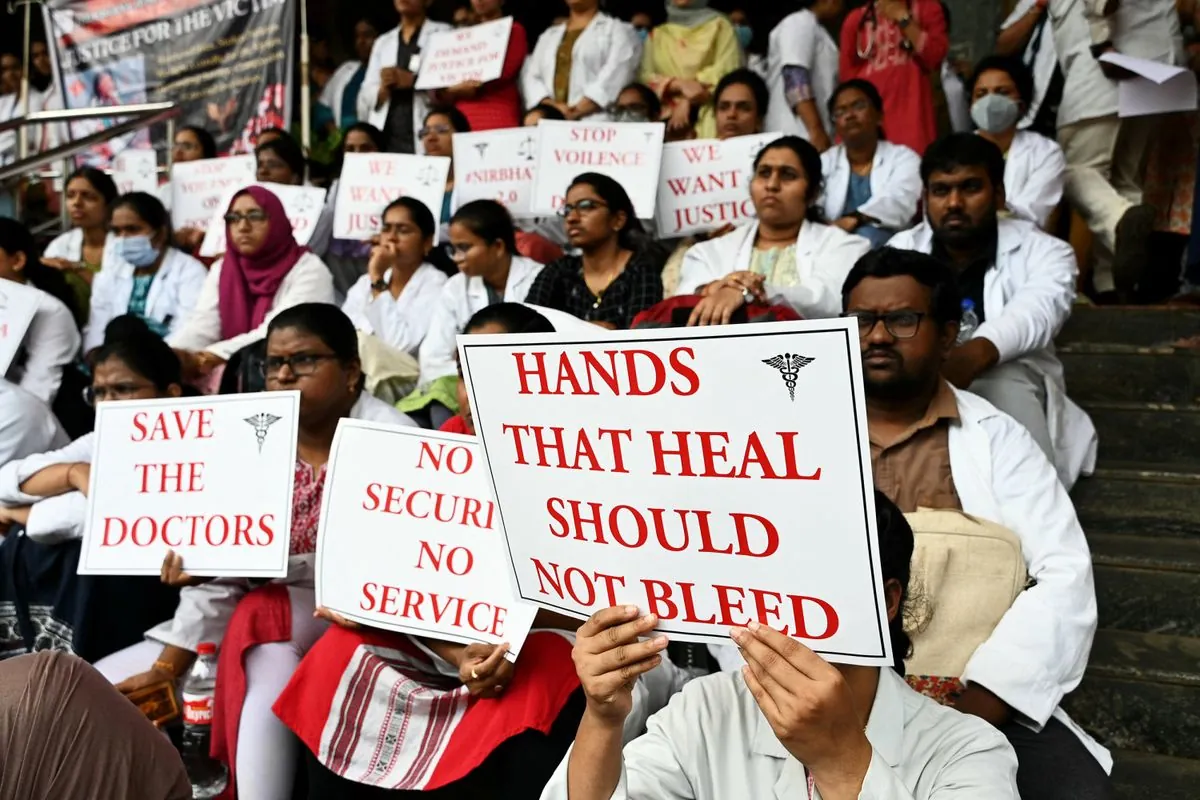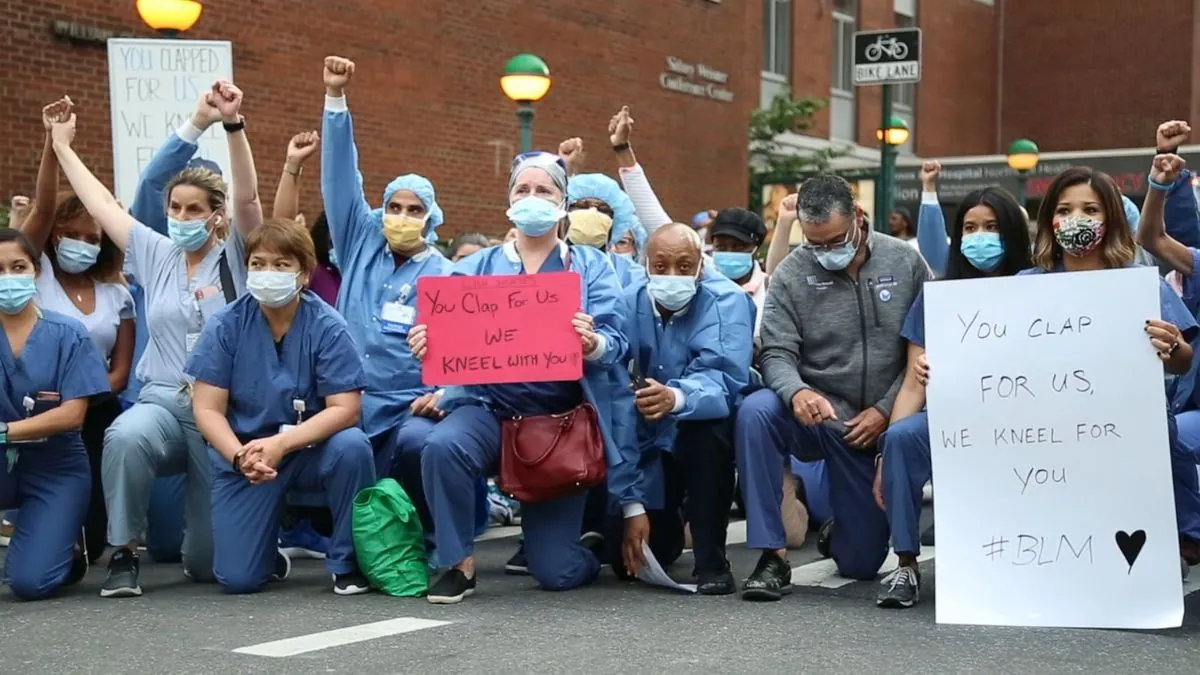Indian Medical Workers Strike Nationwide Over Doctor's Murder
Medical professionals across India strike to protest the rape and killing of a trainee doctor. The incident has reignited discussions on women's safety and working conditions in healthcare.

Medical professionals across India have initiated a nationwide strike in response to the recent rape and murder of a trainee doctor in West Bengal. The 24-hour work stoppage, which began on August 16, 2024, has significantly impacted non-essential medical services throughout the country.
The Indian Medical Association (IMA), India's largest doctors' organization established in 1928, called for the strike to demand justice for the victim and improved safety measures for healthcare workers. This action has affected thousands of patients, highlighting the severity of the situation and the medical community's resolve.
The incident that sparked this outcry occurred on August 10, 2024, when authorities discovered the body of a 31-year-old trainee doctor in the seminar hall of R.G. Kar Medical College and Hospital in Kolkata, the capital of West Bengal. The state, home to over 91 million people, has been thrust into the spotlight due to this tragic event.
Law enforcement has detained a police volunteer in connection with the crime. However, the victim's family alleges that multiple individuals were involved in what they believe was a gang rape. Federal investigators have taken over the case amid accusations of mishandling by state officials.

The medical community's demands extend beyond justice for this specific case. They are calling for comprehensive safety measures within hospitals and medical campuses across India, which has the world's largest number of medical colleges. The IMA has emphasized the need for "safe spaces for women" and stricter laws to protect healthcare workers from violence.
This incident has reignited discussions about sexual violence in India. In 2022, the National Crime Records Bureau, established in 1986, reported 31,516 rape cases—a 20% increase from the previous year. However, experts believe many cases go unreported due to societal stigma and lack of faith in law enforcement.
"This tragedy underscores the urgent need for systemic changes to ensure the safety of all healthcare workers, particularly women, in their workplaces."
The current situation echoes the nationwide outrage following the 2012 New Delhi bus gang rape. That incident led to significant legal reforms, including the Criminal Law (Amendment) Act of 2013, which expanded the definition of rape and increased penalties. The government also introduced fast-track courts for rape cases and lowered the age at which a person can be tried as an adult from 18 to 16.
Despite these changes, including the establishment of the Nirbhaya Fund in 2013 to support women's safety initiatives, challenges persist. India's doctor-patient ratio of 1:1456 as of 2021 highlights the strain on the healthcare system, potentially contributing to safety concerns.
As the strike continues, it serves as a stark reminder of the ongoing struggle for women's safety and the need for improved working conditions in the healthcare sector. The medical community's united stand reflects a broader societal demand for change, echoing the constitutional guarantees of equality and non-discrimination enshrined in India's founding document.


































